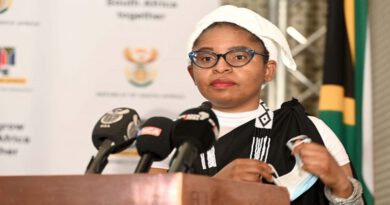Farmers bear the brunt of shortage of fertilisers coupled with high costs
Farmers continue to bear the brunt of the shortage of fertilisers coupled with high costs. The outbreak of war between Russia and Ukraine pushed up input costs for local farmers due to the surging prices of fertilisers and fuel.
While prices have moderated slightly in recent months, local farmers say costs remain high. This as the planting season is starting. Organisations supporting local farmers have been inundated with calls for help amid constant interruptions in the supply chain of fertilisers.
The South African Farmers Development Association (SAFDA) has been working with government through the KwaZulu-Natal Department of Economic Development to source funds to help emerging farmers purchase fertilisers.
“Recently with the Ukraine Russia war, we’ve seen a hike in inputs costs that has caused a devastating effect onto our farmers to be able to put their inputs and their fertilisers in time. So, we fortunately have been running a project with the provincial department of economic development which issued the tune of R12 million last year. We bought fertilisers for farmers in the Senzela area and this year we decided to channel the R4 million fertiliser project to the Felington area,” says SAFDA executive chairman Dr Siyabonga Madlala.
Emerging farmers have also shared some of the difficulties they face as a result of the shortage of fertilisers.
“It is difficult, even to start planting is very difficult, everything is high but we thank SAFDA for what they have donated for us. The floods washed away the fertilisers, diesel is up, it’s a double whammy, it’s expensive to farm these days,” says farmer Inkosi Shilo Mthembu.
Small-scale farmers say the prices of fertilisers have tripled, a move that has seen many farmers opt to scale down on cultivated land, posing a threat to food security.
“We are very excited about intervention by SAFDA as small-scale farmers for the fertilisers. At the moment we are facing problems of fertilisers, they are too expensive. When I make an example a 515kg size bag is costing R1500 at coastal farmers but now even if we get six bags it means the world for us as small-scale farmers because we don’t have enough money to buy. That would mean the world to us because we don’t have money to buy the fertiliser,” says Empangeni small-scale farmers chairperson Ndlelenhle Mncwango.
Agricultural economists say it’s a concern that farmers are scaling down on their planting in order to keep farming.
“We are quite concerned that farmers are scaling down some parts of their planting in order for them to afford and keep up with their farming operations in a feasible manner. The farmers have been contending with other types of input costs that have been skyrocketing for over a year, seen diesel prices and electricity costs go up. As it stands, any form of support from government and the private sector would go a long way in assisting the farmers in cushioning the particular impact that they’ve been feeling on the fertiliser side of things,” says agricultural economist Kulani Siweya.
There are growing calls for more assistance for struggling farmers this planting season.
Experts have cautioned that financial assistance for emerging farmers must be given in an open and transparent manner. Others want the country to start building its own capacity to produce fertilisers in the hope of lowering the costs.
Share article
Source: SABC News (sabcnews.com)


